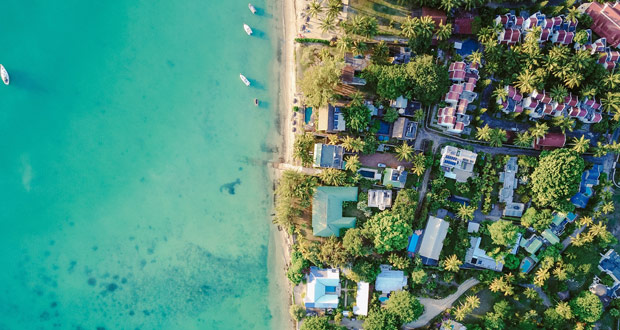
Times are changing for the lodging industry and all eyes are on the millennial generation for what’s going to happen next. Luckily, there is a lot of good economic news on the horizon for this segment of the population. For example, overall homeownership rates rose to 64.2 percent in the fourth quarter of 2017, up from 63.7 percent a year earlier, according to data released by the U.S. Census Bureau. In fact, the share of Americans who own a home has been on the rise since the first quarter of last year, indicating a reliable upward trend. The market shift that favors owning over renting for primary homes is being driven by millennials. But, how do these favorable housing statistics impact the hotel and resort industry?
As millennials purchase their first homes and establish themselves financially, oftentimes the next big investment is in a vacation home. However, due to the current economic environment, many find themselves priced out of a second home. As such, fractional ownership of vacation homes has become increasingly attractive, creating a new sweet spot for the lodging industry.
Fractional ownership, also known as deeded ownership, is similar to a timeshare in that owners get to use the property for a given number of weeks per year, but different in that they also purchase real property from the resort, not just time. If the fractional owner can’t or doesn’t want to use any part of the nine weeks they are allocated, the resort may rent the unit and split the proceeds with the owner, who has literally bought a fractional share of a residence. For hoteliers, this can be an attractive revenue generator.
Fractional ownership at resorts also offers amenities and services without the responsibilities of upkeep and chores that come with fully owned properties. From the property owners’ perspective, the business model makes sense as well because it offers the opportunity to sell out a building quickly.
Fractional ownership is a win-win for hoteliers and a trend that continues to grow in the vacation home market. How a resort prices its fractional offerings is based on the property, location, and amenities. RiverWalk Resort at Loon Mountain, a resort property in Lincoln, N.H., offers fractional ownership that can be purchased in whole, seasonally, or fractionally, and includes studio condominiums starting at $60,000 and tops out with three-bedroom condos upwards of $200,000.
This has been a solid business strategy for the resort, and sales have been brisk. RiverWalk is poised to add approximately 60 additional turnkey residential units, a conference center, a pulse gondola lift, and a second restaurant in the near future. The Resort will also double the sizes of existing amenities, which include a winery production and tasting room, a full-service day spa and an Italian restaurant.
Interestingly, millennials often gravitate to the same vacation communities they enjoyed as youngsters, which presents a built-in marketing opportunity for hotels and resorts. Fractional ownership makes it affordable for them to bring back fond memories while making new ones. Another trend driving the popularity of fractional ownership is “togethering” – families who want to vacation in three generations.
With fractional ownership, and the new millennial generation, vacation hotels and resorts aren’t just a matter of “location, location, location”–they are also about amenities, activities, and affordability. For resort properties located in vacation destinations, the business model is a step in a new and exciting direction.
About the Author
Dennis M. Ducharme, RRP, is president of RiverWalk Resort at Loon Mountain in Lincoln, New Hampshire. A 35-year veteran of the New England hospitality industry, he is also a development partner with William E. (Billy) Curran of InnSeason Resorts and Pollard Brook Resort, New Hampshire’s largest purpose-built vacation ownership resort, and one of InnSeason Resorts’ signature properties. A leader in New England real estate development, including Cape Cod, he handles property acquisitions, product design and construction, lender relations, operations, asset administration, and resort information systems.











